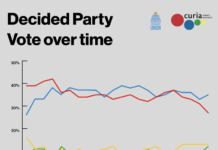Worrying signs of the recession are all around for those who look. Martyn Bradbury wrote last week about how “Kiwis are spending more on their credit cards to keep up with the rising cost of living”
As well, suggesting a repeat of history, the signs are again emerging of third tier lending:
Homeowners at risk of having their properties repossessed by their lender are turning to third-tier finance companies to avert a mortgagee sale, OneRoof has been told.
Mortgage adviser Jonathan Battersby, whose company, SOS Non-Bank, specialises in finding private lending solutions for clients who have been refused finance by the banks, has noticed a big uptick in inquiries from stressed homeowners.
Here’s how it goes:rising interest rates and recessionary forces catch out the over-leveraged who can’t service their mortgages; the banks become more choosey as to who can borrow as credit risks increase; those turned away by the official banks turn to the ‘non-banks’.
In the meantime, depositors at the banks try to protect themselves from inflation but find the return after tax on their term deposits woeful. Clever marketing by finance companies lure Mum and Dad depositors with promises of marginally higher rates that under-play the risks. A finance company gives the investor an IOU which is not itself money in exchange the ownership of their bank deposit.
In the process known as shadow banking, finance companies or ‘non-banks’ then on-lend these deposits at high interest rates to the overleveraged, desperate homeowners.
The numbers of outstanding IOUs held by Mum and Dad investors as well as hard- pressed property developers grow rapidly as shadow banking takes off in a fragile housing market. Inevitably depositors try to get their money back. For a while they can be serviced as finance companies attract new deposits to repay loans. But when the source of new deposits dries up and finance companies have to call in loans, bankruptcy and defaults may rapidly take hold.
Investors discover their IOUs are not real money at all and are next to valueless.
After the last explosion in shadow banking 2006-2012, 67 finance companies went under, with losses for investors of over $3 billion, including the well-known and trusted names of South Canterbury Finance, Hanover Finance and Bridgecorp Holdings
Recall the voiceover of Richard Long at news time on TV even when the company was actually in trouble? “You can’t rely on the weather but you can rely on Hanover Finance.”
Hanover Finance was a New Zealand non-bank finance company that focused on lending for high-risk property development that failed in 2010 under the leadership of Mark Hotchin.
Following this collapse, there were wide changes made to regulations of finance companies. There is now a list of registered finance companies with Reserve Bank oversight. And, it was announced last week, that by 1 March 2025 about 100 registered banks, licensed insurers, and licensed non-bank deposit takers such as credit unions, will need to be licensed by the Financial Markets Authority (FMA)
…the Financial Markets Authority (FMA) –will begin accepting licensing applications for financial institution licenses under the Conduct of Financial Institutions (CoFI) regime….which comes into force on March 31 2025, requires these institutions to put fair treatment at the heart of their business. Each institution must treat consumers fairly – the “fair conduct principle” – through the requirement to establish, maintain and implement a fair conduct programme. They must take all reasonable steps to comply with the programme and with regulations that ban target-based sales incentives and regulate other types of incentives.
Will the ‘fair conduct principle’ in 2025 really prevent another debacle emerging with the shadow banking sector?





Is it fair to say there is not much difference between finance companies & the scams that cause loss to many people? RNZ has an article saying “Around $183 million has gone out of New Zealanders’ accounts over the last year, a 20 percent rise on the year before.” so I suspect the old saying about a fool & their money has some truth. I got burnt about 15 years ago when an email from a friend in Tauranga recommended some site in China for purchasing. After ordering a new laptop I received an email about customs required & the need for more money, I then contacted my friend who told me that they didn’t send me the email.
When the hard times come I suspect that even those with money in real banks (yes that’s me as well) will have trouble accessing it which probably explains the number of people who want to provide more of what they need, gardens, solar panels, etc. The unfortunate reality is that most of the population does not have that ability so interesting times are ahead.
There is a difference between outright fraud and cons and the use of the nonbanks that are now a registered part of our financial system. These non-banks advertise in the daily paper but most people see a higher rate of return and dont read the fine print that nothing is guaranteed. The non-banks may have a useful role to play in niche lending markets but shadow banking at times like this has worked out extremely badly for ordinary folk several times now in our history.
It worked out alright for Mark Hotchin.Apparantly he has a property portfolio of 40million plus.
Surely people learned their lessons from the financial charlatans of Bridgecorp,Nathans,Sth Canterbury,Rifleman,St Lawrence etc.
You should have seen the chaos and social disruption in Argentina when the banks wouldn’t allow depositors and waged and salaried workers access to their funds circa 2002. In an economy where Mr Micawbers economic analysis was an apt description of the dynamics of the Argentinian society, the banks behaviour was a catastrophe.
Shades of Paris 1769
the greed and desperation of the over leveraged and pay later industries are designed that way, exploitation and misery is their business model…the question is exactly why and WHO is opposing regulating them?
Superficially, most of them, Pepper, Bluestone, Resimac, etc, are ‘Australian’. When you look more closely, just like the ‘Australian’ banks, it’s actually ‘American’s…. in the case of Bluestone, that’s the ‘private equity’ (corporate looting) Cerberus Capital Management. Others are owned by the really evil BlackRock group.
Fun fact, Jacinda met with BlackRock’s CEO end of last year.
Sounds like Labour Government policy spend now,someone else will pay it back.
Sounds like you don’t know at all Bob the thirsty..
Thanks for your work weaving, piece by piece, a picture of the impossible situation we force the poor to try and survive. There are so many angles and aspects and all are invisible to the comfortable class who so often judge and condemn.
I remember the words of some ad years ago: ”You know the odds – now beat them.” For most the odds are impossible and trying to survive immerses those trying to survive in more layers of a net they will never escape.
The poor are the mattress on which the comfortable sleep.
And yet it is Winz that is the biggest pay day lender with how many millions/billions lend to welfare recipients?
indeed but that reletavism excuse doesn’t make the private lenders any less of a preatory parasitic infection on our society does it bratty?
So the solution to Winz would be real full employment, a highly skilled, highly productive and highly waged econonomy. What political party is attempting to achieve this? There is no plan.
Well apparently economists say full employment is bad because it creates inflation. No nothings wrong with the system. Perhaps Blam Blam Blam could right a song about it.
Full employment undermines the Neo-Liberal system and passes too much power to the worker, who can take their skills elsewhere for better pay & conditions, if they aren’t happy. Training people also costs companies money and those workers might leave, taking their skills (and expensive training & experience) with them, so it is better to import “skilled” workers and bond them to employers via restrictive visa conditions. Indentured, imported slaves are cheaper and easier to exploit, leaving those useless, drug-addled, lazy Kiwis on the scrapheap. Now that’s a great way to build a better society. Not!
WINZ and IRD debt are huge problems for low-income people, as is student loan debt. The government has failed to feed back to us any of the results of its latest consultation on this entrapment debt. NGOs once again were sucked into giving so much unpaid time so the highly paid bureaucrats can tick the boxes. It is time for a massive debt forgiveness programme but Labour has dropped the ball. But debt to govt is a bit different to the non-bank for profit lending I am warning about here. We don’t as a nation talk enough about protecting the balance sheets of low and modestly well-off people who get sucked in trying to protect the little they have.
The stress associated with debt has a serious on-cost for society. Often, effectively ruining the chances of those who are poor to lift themselves up.
We need better targeted assistance for those struggling on low incomes. We need to do this to help those trapped in poverty and to create a better performing economy that will benefit all NZers.
If more of us trust government to spend our taxes wisely, more of us will be happy to contribute more in the form of taxes.
Agree to an extent JKT but definitely need a change of Government to see taxes spent wisely and a better performing economy.
Labour Government’s excel at spending other people’s money.
For mine the government had the option of a rent freeze and now has to do something else about those in these cost higher than income scenarios (the credit card overload/pay day loans spiral).
Debt forgiveness is a good term for an overall policy of action – I’d hope to see a realisation it is a time to either establish (WINZ) or lift the income level at which repayment applied. And from that the next step a moratorium year of no repayment required.
It matters little if the debt collector is called by the bank or by winz, they both use the same companies to get back their due.
Fact is that Winz lends probably higher amount of money to people that have non then the Banks. Banks have risk to consider, Winz don’t. Banks can fail, Winz will try to collect these debts still when armageddon has come and passed. And for what? some dentistry or a bed or a wash machine.
So yeah, unregulated Winz trapping people in poverty is worse then banks giving out shady loans any day of the week.
“NGOs once again were sucked into giving so much unpaid time so the highly paid bureaucrats can tick the boxes.”
But you can’t say we didn’t consult with all the relevant stakeholders, just because we chose to ignore anything that didn’t fit with our preconceived ideas, can you? That’s how public consultation works.
Gulp
we are all such slow learners
The Labour re-election plan
Those with mortgages will go via the credit card route, the banks will get profit from the high cost of this, then expect their more desperate customers to go to crisis capitalism financiers (banks offload risk while getting the mortgage payments paid – so their books profits look good and no mortgagee sales).
The NACT government re-direction – policies to encourage higher property values, but also more unemployment – so more mortgagee sales (bank mortgages covered by the sale price – any loss just equity of the customer/former owner).
and banks will hold back these mortgagee sales to not flood the market with cheap houses just as they did after teh 2008 financial meltdown.
Maybe really just really, people need to wake the fuck up and realise that 2019 is gone, will not come back and its time to tighten the belts, lock in the mortgages and not hope for a change in their favor tomorrow cause chances are it will not happen. Plan for the worst outcome, not the best.
properties that will be vacumed up by corporate landlords…that’ll be fun
Bang on SSJ.
Along the Richard Long line, I’m quite worried/disappointed when I hear people like Tony Alexander claiming the recession is all but over. House prices have bottomed and starting to rise.
Banks and realestate companies running this line, i get. But not economists.
I don’t believe for one minute the real pain has hit yet, all we have is another round of FOMO in the property market, fuelled by these so called experts.
I quite agree Mike. This recession is a serious one and if we get another housing boom the pain will be enormous